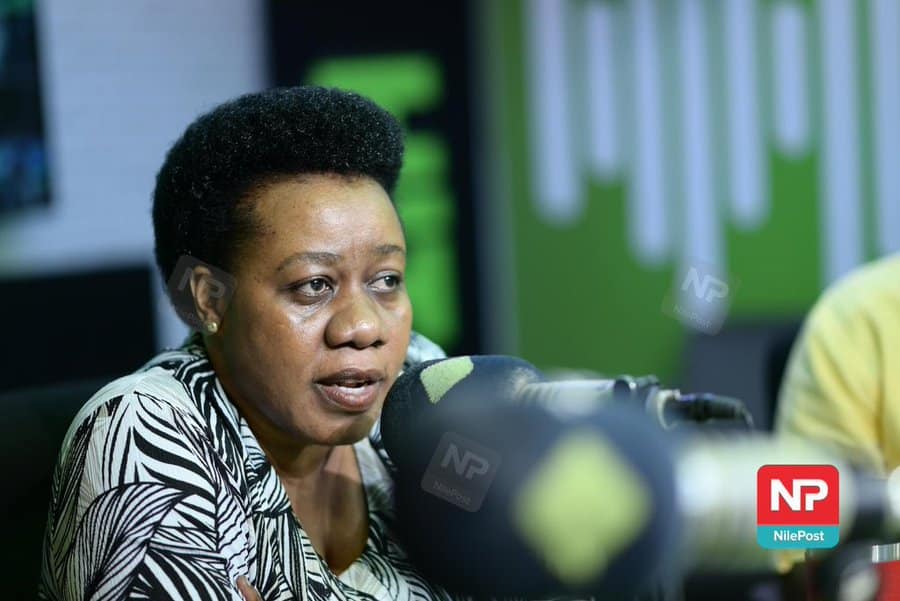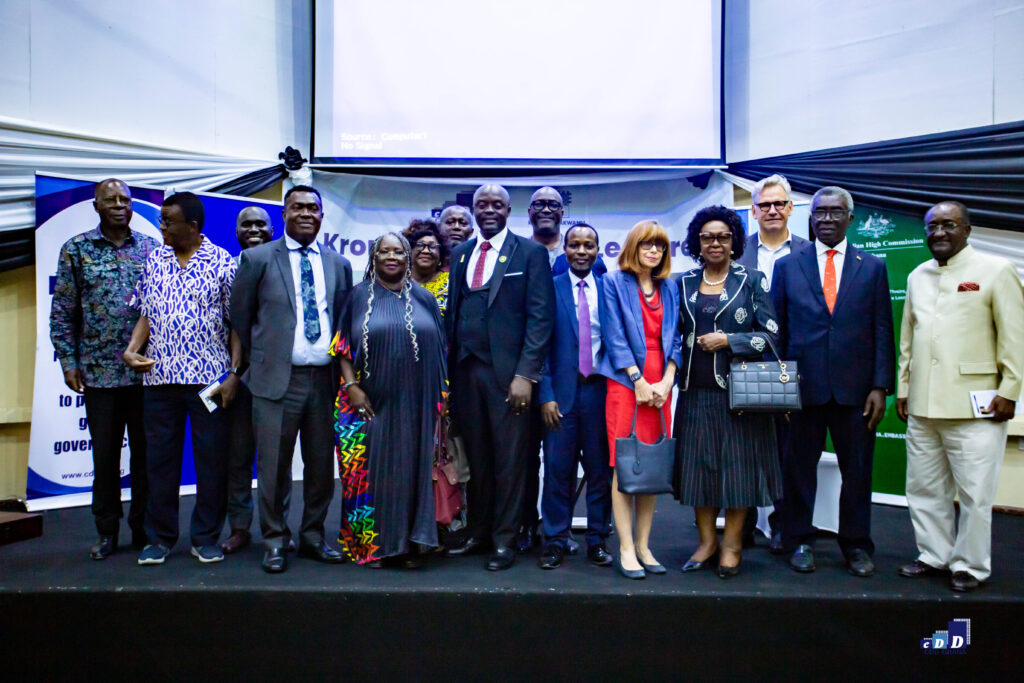As previously mentioned in Part I, there is yet another attempt to pass an affirmative action bill. The legislation, Affirmative Action (Gender Equality) Bill 2024, was presented to parliament on June 14, 2024. In Part I of this three-part series, the analyses mapped the gender dispositions landscape in Ghana which showed that Ghanaians a) have positive and strong normative beliefs about gender and women’s rights issues; b) strongly support equal rights or opportunities for women; c) believe that women and men enjoy certain equal opportunities; and d) do not rank gender and women’s issue very high on their list of policy priorities.
Part I ended by encouraging Ghanaians to view the proposed legislation as seeking to a) affirm our normative beliefs in gender equality; b) address incorrect assessments of our belief about gender practices and treatment of women; and c) narrow and close gender gaps in both public and private sector spaces.
In Part II, the analysis focuses on key highlights of the proposed legislation examined along two key dimensions – a) strategies for closing gender gaps; and b) the governance framework for implementation.
Strategies for Closing Gender Gaps
The purpose of the bill is described as “to effectively redress social, cultural, economic and gender imbalance in the country, based on historical discrimination against women emanating from persistent patriarchal socio-cultural systems and norms in spite of de jure equality of men and women.” Here are some key highlights of how the bill proposes to do that.
- The use of quotas. The use of quotas is one strategy affirmative action efforts around the world attempt to address gender imbalances. Although in certain jurisdictions these have become a source of political contention resulting in the need for judicial review, they continue to be used. In this bill, quota is one of the key identified strategies to close the gender gaps in the public sector. The legislation expects that a) seats will be reserved for women in cases of appointments to specified bodies in the public service; b) a percentage of the Ghana Education Trust Fund and District Assemblies Common Fund will be set aside to promote girl child education; and c) political parties will work to ensure reservation of safe seats for women parliamentarians.
- Policy directives. In clauses 16-18 “Affirmative Action and Gender Equality and Equity in Governance Institutions” the bill issues several directives to public sector institutions, essentially urging gender considerations in making appointments and selection of individuals for employment. In addition, there are directives to ensure that women do not suffer discrimination in governance institutions. Also, political parties, who in my opinion are critical players in Ghana’s democratic space, are expected to ensure adequate representation of women in various aspects of their activities. The last policy directive sets targets for the achievement of gender parity by the year 2030. The pace is quite aggressive as these institutions have six years to meet fifty percent (50%) of all gender equality targets. Hopefully, adhering to these policy directives will result in narrowing or closing gender gaps in our governance institutions.
- Fiscal tools. The bill is unique in its inclusion of fiscal tools to promote and achieve gender equality. There is a requirement for Ministries, Departments, and Agencies of Government as well as District Assemblies (MMDAs) to undertake gender-responsive budgeting. This requires MMDAs to set aside resources in their respective budgets to address gender-specific issues. The other fiscal tool offers private-sector employers tax incentives for rapidly achieving the gender equality targets set in the bill. Both tools are excellent ideas as they ensure that- a) resource allocation in the public sector is aligned with the priority being placed on achieving gender equality, and b) the private sector is incentivized enough to commit to also achieving gender equality.
Governance Framework for Implementation
This section highlights key aspects of the governance framework (who does what, when, and how) for implementation should the bill become law.
- The Gender Equality Committee. The committee, with representation from key public agencies and the private sector, is charged with many functions including monitoring compliance with the provisions of the proposed legislation. The key point to note about the prescribed functions is the regulatory burden it creates for the committee as it is expected to a) be the receiver and reviewer of all the annual gender equality reports from the public and private sector; b) issue certificates of compliance; c) receive and resolve complaints of non-compliance with the act; and d) compile an annual gender equality report disaggregated by sector for the minister to be submitted to parliament. The bill provides for a secretariat to support the work of the committee which greatly helps to manage this potential regulatory burden. The capacity (systems and processes) of the secretariat and committee will be critical to successful monitoring and compliance. Also, to further ease the regulatory burden, the committee can explore the benefits of using strategies such as peer review in determining compliance and issuing certificates of compliance to public sector agencies and private employers.
- Multiple centers for resolving gender discrimination. Per the bill, the Gender Equality Committee can receive, investigate, and recommend actions if a case of gender discrimination is established. The Commission on Human Rights and Administrative Justice (CHRAJ) is also permitted by the proposed law to investigate cases of gender discrimination. The National Labor Commission is charged with investigating and settling gender discrimination cases related to labor issues. However, the cases must be referred to them either by the Gender Equality Committee or the Commission on Human Rights and Administrative Justice (CHRAJ). In this configuration, also keep in mind that a person may file a gender discrimination case with either the Gender Equality Committee or the Commission on Human Rights and Administrative Justice (CHRAJ). It will be important to prevent any potential duplication of efforts in this institutional arrangement. Perhaps legislators should consider designating a single center for the filing of gender discrimination cases even if multiple avenues for resolution are permitted.
- The Electoral Commission and Political Parties. All registered political parties are expected to achieve gender equality targets. As part of the bill, they must submit annual compliance reports to the Electoral Commission, the designated entity charged with ensuring political party compliance. A small note of caution. There is existing legislation dealing with political party and campaign financing for which the Electoral Commission is the entity charged with ensuring compliance. The work of the commission has been less than satisfactory in this area. Hopefully ensuring compliance with gender equality will not suffer the same fate.
- Ministerial Discretion. The bill allows institutions to seek exemption from complying if it can demonstrate that for certain occupations it is necessary to recruit from a specific gender. This leaves the granting of exemptions to the discretion of the gender minister. As discussed in the previous section, private employers can receive tax incentives for meeting the gender equality quotas within a year of the bill becoming law. These tax incentives are granted by the Minister for Finance in “consultation with the Ghana Revenue Authority and upon the recommendation of the gender minister.” However, the language in the bill is not obligatory and appears to leave granting tax incentives to the discretion of the finance minister. The exercise of discretion can sometimes be arbitrary. It is therefore important that whatever guidelines are developed for granting exemptions or tax incentives are stringent enough to prevent any potential abuses of discretion.
- Incentive structure. Incentive structures do two things. Firstly, they provide rewards for doing right and secondly, they exert punishment for doing wrong. As discussed previously, the bill proposes that institutions meet certain gender equality targets by 2030. In addition, those deemed to be complying will be issued with Gender Equality Compliance Certificates. For private sector employers, meeting the quotas allows them to potentially receive tax incentives. In addition, receiving a Gender Equality Compliance Certificate allows private employers to be given preference in the award of government contracts. The incentive structure is uneven though. For public sector agencies or political parties, there appears to be no rewards tied to compliance or receiving the certificate. However, there are associated penalties. In the case of political parties for example, non-compliance will result in the withdrawal of in-kind support from the Electoral Commission. Perhaps the uneven nature of the incentive structure can be corrected before the bill becomes law.
In Conclusion
The legislation is very comprehensive as mentioned in Part I. Part II attempts to provide key highlights of the bill aimed at achieving gender equality. The strategy is multifaceted and directed at both the public and private sectors. The governance framework has responsibilities for multiple actors but requires that certain issues are clarified and resolved as the legislation makes its way through Parliament.
 John Osae-Kwapong (PhD) is a Democracy and Development (D&D) Fellow at the Ghana Center for Democratic Development (CDD-Ghana) and the Project Director at The Democracy Project.
John Osae-Kwapong (PhD) is a Democracy and Development (D&D) Fellow at the Ghana Center for Democratic Development (CDD-Ghana) and the Project Director at The Democracy Project.
















